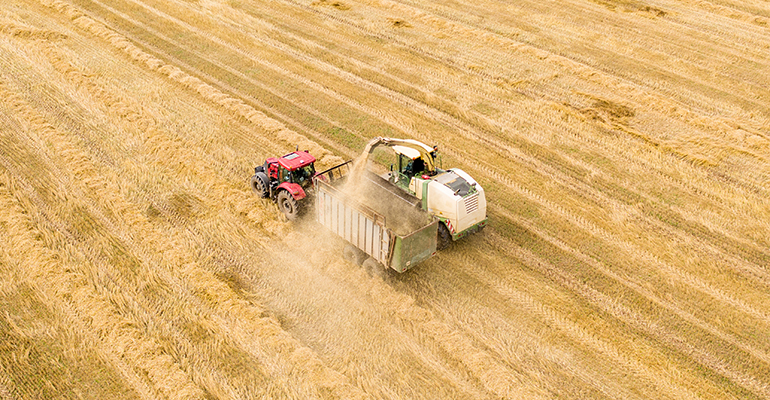News
War in Ukraine results in pronounced effects on plant-based market
25 May 2022
The continued conflict in Ukraine has sparked concern over the future food security in Europe and beyond. A new survey from ProVeg International found that over half of respondents have reported changes in the availability and access to ingredients as a result of the war.
In its survey, the non-profit organisation found that 61% of respondents are experiencing both a shortage of raw ingredients as well as a higher price point for those ingredients they can access.
Higher energy and transportation costs were reported by 64% of those surveyed while 59% thought higher ingredient and energy prices would lead to an increase in product prices. But it is not just the ingredients themselves that are being affected. In the survey, ProVeg found that 69% of companies said it will remain difficult to recruit skilled workers for the sector.

Known as the ‘breadbasket of Europe,’ Ukraine is a major producer of many of the grains and vegetable oils that are used globally.
Ukraine alone is responsible for 14% of global corn exports, 15% of barley exports, 51% of sunflower-based vegetable exports and 14% of rapeseed oil exports. This country’s production of these commodities is so essential that the disruption by this war spurred the Food and Agricultural Organisation (FAO) of the United Nations to warn that international food and feed prices may rise by up to 20%.
ProVeg reported similar findings, saying the biggest challenge for companies is the price of raw ingredients since the availability, supply and price of edible oils are acutely affected. As Ukraine is the world’s biggest exporter of sunflower oil, respondents said that sunflower oil was becoming very scarce and alternatives are having to be sourced quickly.
ProVeg: Plant-based is the backbone of future EU food system
The European Commission developed the Farm to Fork strategy, a course chartered to create a sustainable food system while protecting biodiversity and ensuring access to food across the economic bloc. This food access strategy is at the heart of the European Green Deal.
However, while the European government is encouraging a move toward more sustainable, plant-based sources of nourishment, ProVeg's survey revealed that 25% of participants said that they would require government support in order to help them tackle the challenges created by the Russian invasion of Ukraine and deliver plant-based products. Another 29% of those surveyed noted they may require support.
In the short term, food security is a priority for many governments. Already prior to this conflict, food security and prices were of concern due to volatile markets and agricultural strains caused by drought and wildfires in Russia.
“The crisis comes at a moment when international food markets are already struggling with soaring prices and the continuing fallout from the COVID-19 pandemic,” said Adriana Herrera, chair of the Agricultural Market Information System (AMIS). “Apart from causing humanitarian hardship in the region itself, the crisis risks jeopardising the food security of millions of people around the world who depend on affordable food from international markets for their daily subsistence.”
